In 1993, Loyd Jowers confessed that he had paid someone to kill Martin Luther King Jr. as part of a high-level conspiracy involving government agencies and that James Earl Ray had been framed.
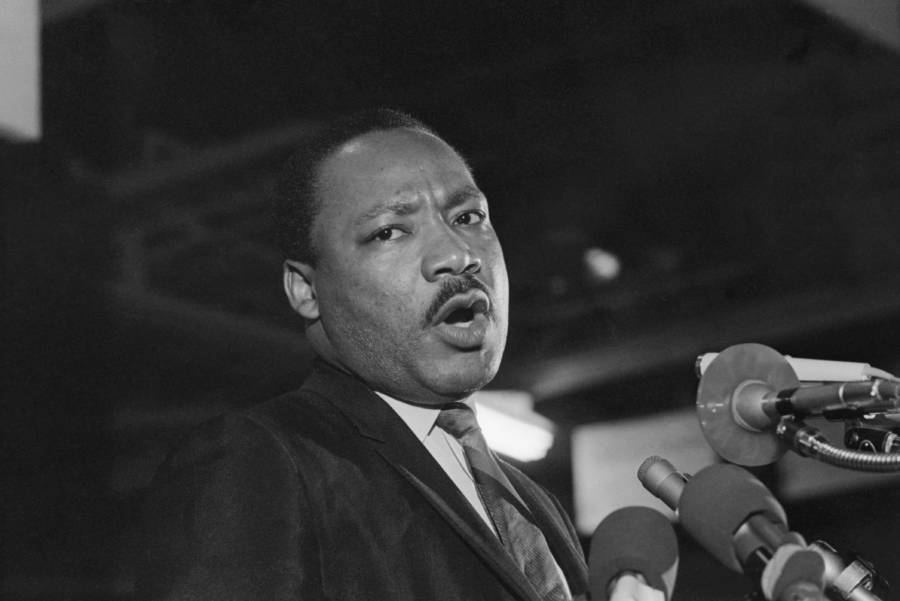
Bettmann/Contributor via Getty ImagesMartin Luther King Jr. delivers his famous “I’ve Been to the Mountaintop” speech at the Mason Temple in Memphis, Tennessee on the night of April 3, 1968. The next day, King would be assassinated.
Shortly after the assassination of Martin Luther King Jr. on April 4, 1968, King’s assassin was revealed as James Earl Ray. Ray confessed to killing the civil rights leader, and the case seemed closed. But in the decades since, Ray — and the King family — have hinted at a larger conspiracy involving the Mafia, the U.S. government, and a man named Loyd Jowers.
Indeed, Jowers himself, who owned a Memphis restaurant near the Lorraine Motel where King was shot, claimed that he had played a role in King’s murder. In 1993, he publicly announced that he had accepted money to set up the assassination — and that Ray wasn’t involved.
Jowers’ shocking revelation led to a civil suit six years later, in which a federal court found that Jowers and “unknown conspirators” were liable for King’s death. Yet far from triggering a political earthquake, the shocking verdict was dismissed by many as a sham.
This is the murky story of Loyd Jowers, the MLK assassination, and why some still have questions about Martin Luther King Jr.’s death.
Inside Martin Luther King Jr.’s Assassination
At around 6 p.m. on April 4, 1968, Martin Luther King Jr. stepped out onto the balcony of the Lorraine Motel in Memphis, Tennessee. The civil rights leader had come to the city to support the Memphis Sanitation Workers’ Strike and was preparing to attend a dinner with a Memphis minister.
But as King spoke to colleagues standing in the parking lot below, a shot suddenly rang out. Struck in the face, King collapsed. He was pronounced dead about an hour later, according to the King Institute.
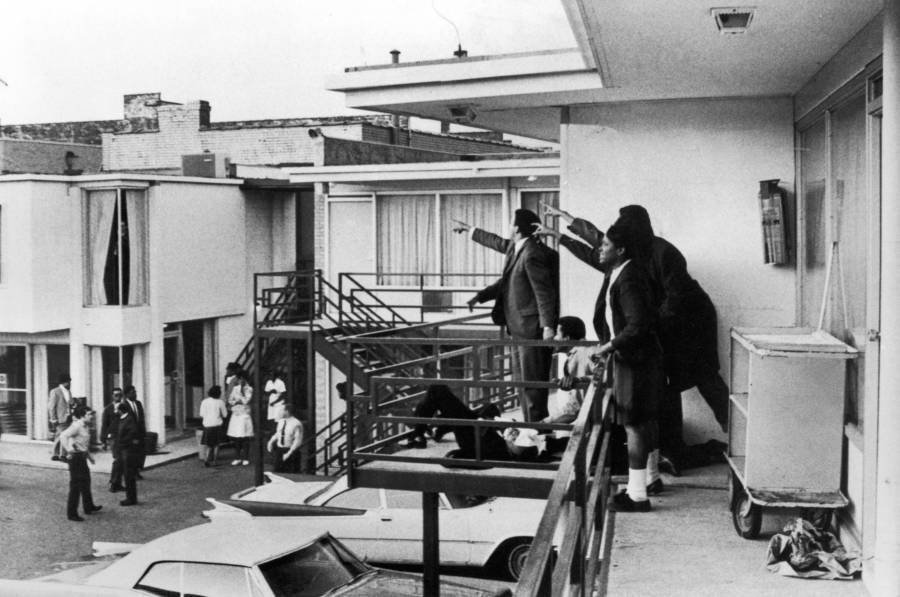
Joseph Louw/The LIFE Images Collection/Getty ImagesMartin Luther King Jr.’s associates point in the direction of the gunman. April 4, 1968.
Before long, King’s assassin was identified as an escaped convict named James Earl Ray. Investigators had found Ray’s fingerprints on a rifle discovered nearby, and Ray’s friends and family described him as having racist views. What’s more, both the rifle and a car spotted leaving the scene were registered under aliases known to be used by the fugitive.
Though Ray offered no motive after his arrest, he initially confessed to the assassination. On March 10, 1969, he pleaded guilty and was sentenced to 99 years in prison. But Ray changed his story just a few days later.
Then, Ray claimed that he’d pleaded guilty under pressure from his lawyer and the FBI. He insisted that he had not shot King at all, and that all he’d done was deliver a rifle to a blond Cuban named “Raul” or “Raoul.”
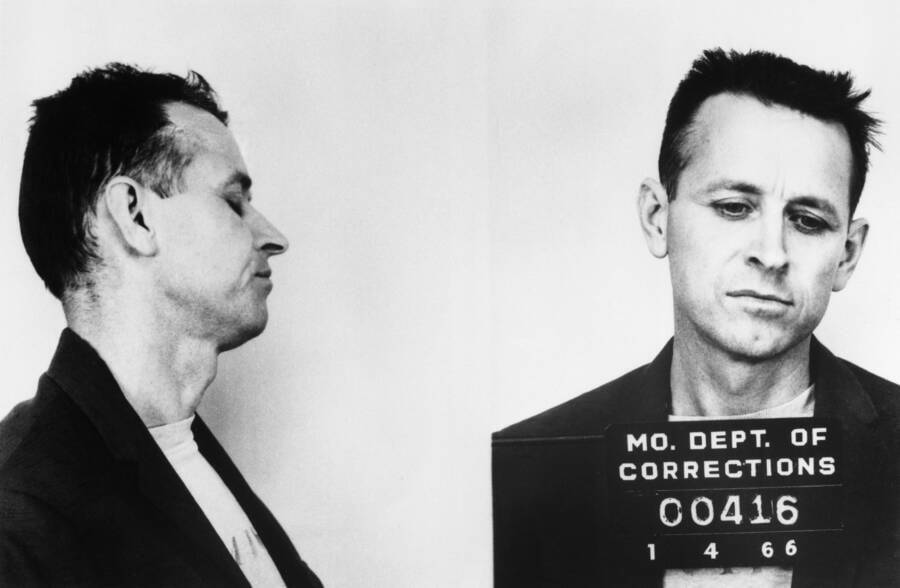
Bettmann/Getty ImagesJames Earl Ray in 1966.
“I went to Memphis to deliver a rifle to this man called Raoul,” Ray later told The Tennessean. “I had met with him twice while in Memphis at Jim’s Grill… On the night of the shooting, I had left the rifle with Raoul.”
Jim’s Grill was located on the ground floor of the boarding house from which investigators believed that King’s assassin had fired the fatal shot. It was owned by a Memphis man named Loyd Jowers. And decades after the MLK assassination, Jowers would start making claims of his own.
Loyd Jowers And The MLK Assassination
In the days following the assassination of Martin Luther King Jr., Loyd Jowers told police the same story several times. According to the U.S. Department of Justice, Jowers claimed he’d been working behind the counter at Jim’s Grill when he’d heard a loud noise. Jowers had gone to investigate, found nothing, and returned to work.
Jowers repeated his story while testifying under oath with the United States House Select Committee on Assassinations (HSCA) in 1978 and during legal proceedings when Ray tried to withdraw his guilty plea. But in the 1990s, Loyd Jowers started telling a different tale.
He appeared on an episode of ABC’s Primetime Live on Dec. 16, 1993. He claimed that he’d been “indirectly” involved in the MLK assassination and that he’d accepted $100,000 from a produce merchant with alleged Mafia ties, Frank Liberto, to “hire someone to assassinate Dr. Martin Luther King.” Off camera, Jowers claimed that King’s assassin had not been Ray, but an “African-American man” who had been seen nearby on the night of the shooting.
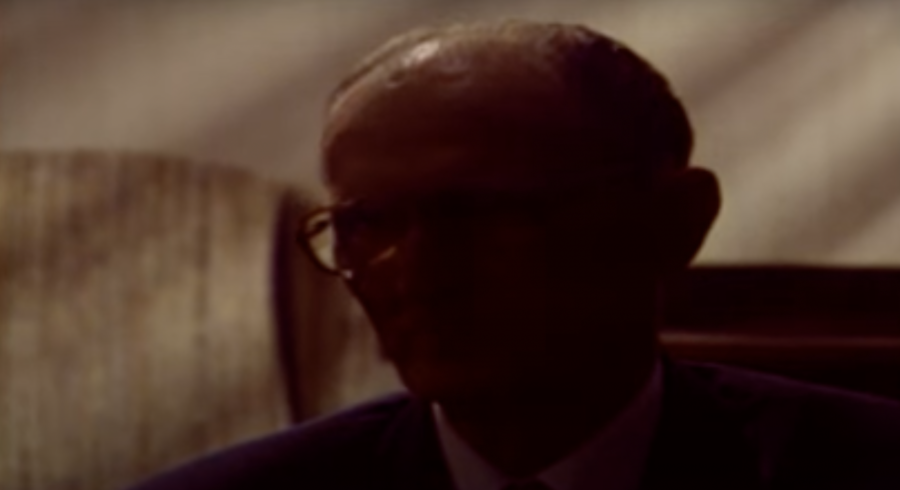
YouTubeLoyd Jowers’ face was obscured during his 1993 interview, though his full name was revealed.
What’s more, other witnesses soon stepped forward. Jowers’ girlfriend, according to the Washington Post, claimed a few months later that she’d seen Jowers break down a rifle and hide it in his bar after the assassination.
Unsurprisingly, Jowers’ claims caught the attention of the King family. Represented by William F. Pepper, one of James Earl Ray’s lawyers, the Kings brought a wrongful death suit against Jowers in 1999. A jury in Memphis unanimously decided that Jowers had conspired to kill King alongside “others, including government agencies.”
Jowers had not testified — he was too ill. And by that point, both Ray and Liberto had passed away. But the King family took the verdict as a victory.
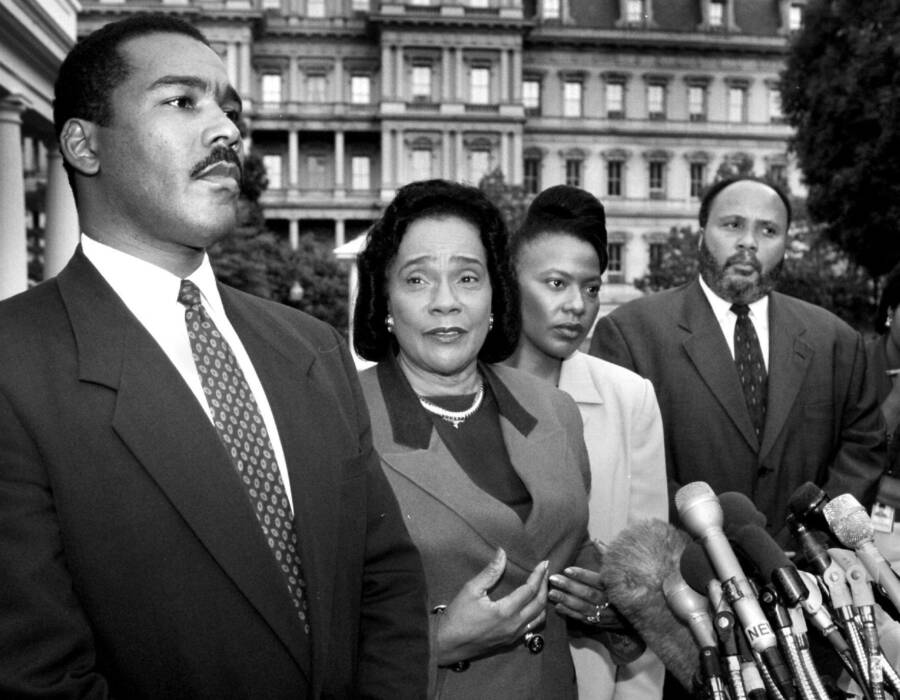
Gerald Martineau/The Washington Post via Getty ImagesMartin Luther King Jr.’s son Dexter, his wife Coretta, his daughter Bernice, and his son Martin Luther King III, speaking to the press in 1998.
“This is the period at the end of the sentence,” Dexter King, Dr. King’s son, said after the trial. “So please, after today, we don’t want questions like, ‘Do you believe James Earl Ray killed your father?’ I’ve been hearing that all my life. No, I don’t, and this is the end of it.”
Other investigations, however, came to a very different conclusion.
Who Really Killed Martin Luther King Jr.?
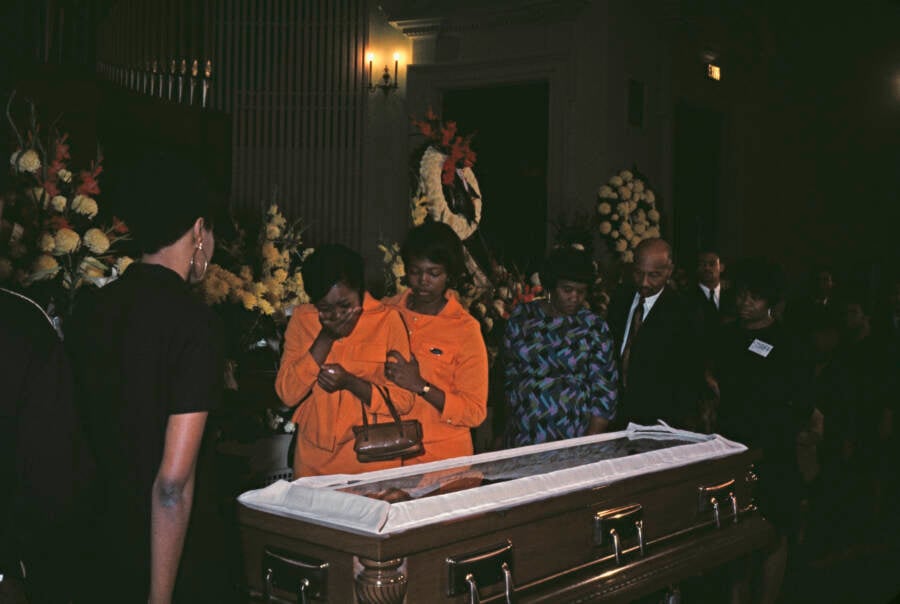
Santi Visalli/Archive Photos/Getty ImagesA woman cries as she attends Martin Luther King Jr.’s funeral shortly after his assassination in 1968.
According to NPR, there have been five official investigations into Martin Luther King Jr.’s assassination since his death in 1968. And all have come to the same conclusion: James Earl Ray killed King.
In 1978, the House Select Committee on Assassinations reopened King’s case. They spoke to Loyd Jowers, who repeated his original story and told investigators that he’d been working at his restaurant when King was shot. The HSCA eventually found that Ray had killed King but had probably had help.
“After examining Ray’s behavior, his character and his racial attitudes, the committee found it could not concur with any of the accepted explanations for Ray as a lone assassin,” the HSCA determined, according to the Independent. “The committee concluded that there was a likelihood of conspiracy in the assassination of Dr. King.”
The conspiracy was not with the government, the HSCA reported, but possibly with Ray’s two brothers or even with American racists who had offered a $50,000 bounty for King’s death.
More than three decades later, another government investigation came to the same conclusion. In 2000, special counsel Barry Kowalski reopened the case after the King family asked President Bill Clinton to look into King’s death. He and his investigators also found that Ray had been the gunman.
“Our thorough investigation, just like four official investigations before it, found no credible or reliable evidence that Dr. King was killed by conspirators who framed James Earl Ray,” Kowalski said. “I remain absolutely convinced this well-supported finding is correct.”
Meanwhile, Jowers — who died that same year — was increasingly looked upon as an unreliable witness. As the U.S. Department of Justice notes, he changed his story several times. Jowers alternatively identified the assassin as an African-American man, a white “Lieutenant” with the Memphis Police Department, “Raoul,” and another person that Jowers didn’t recognize.
As the Independent reports, he appeared to be more motivated by money than truth-telling. Jowers allegedly hoped to attain a movie deal worth $300,000 by speaking out about the assassination.
That makes the fact and fiction of Martin Luther King Jr.’s assassination difficult to discern. Did James Earl Ray kill King, as multiple government investigations have found? Or was Loyd Jowers telling the truth in the 1990s when he claimed that a larger conspiracy had taken King’s life?
“It’s still a mystery to me,” Bernice King, the civil rights leader’s daughter, told the Washington Post. “I don’t believe James Earl Ray killed my father. It’s hard to know exactly who. I’m certainly clear that there has been a conspiracy, from the government down to the mafia… there had to be more than one person involved in all of this. I think it was all planned.”
After this look at the MLK assassination and the Loyd Jowers case, learn about some of the most fascinating Martin Luther King Jr. facts. Then, look through some of the most powerful photos of the civil rights movement.





